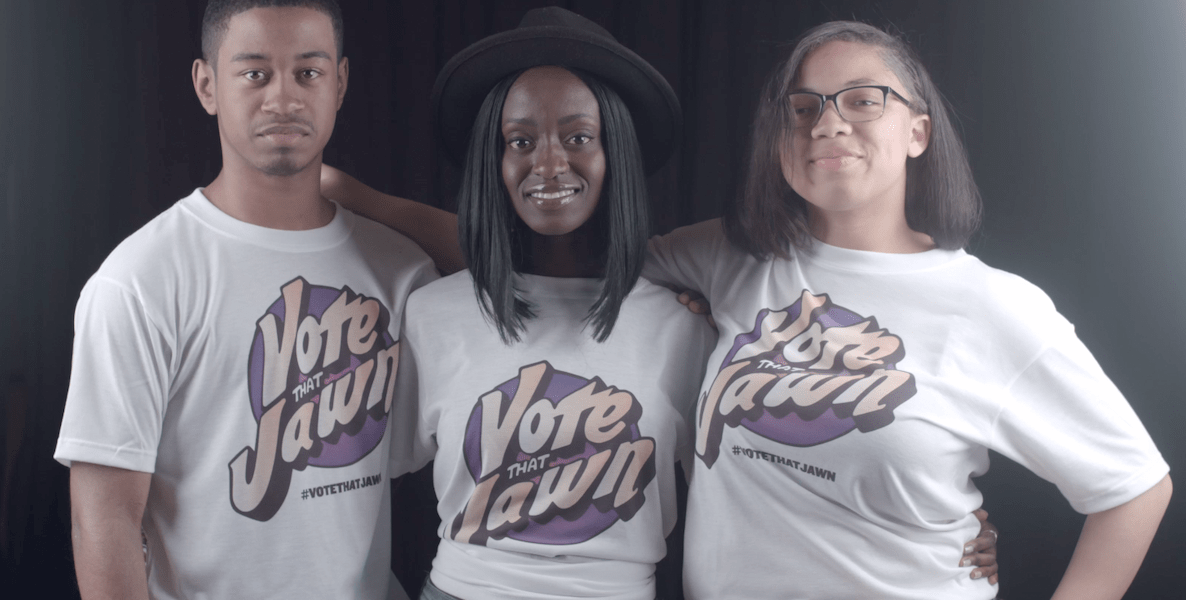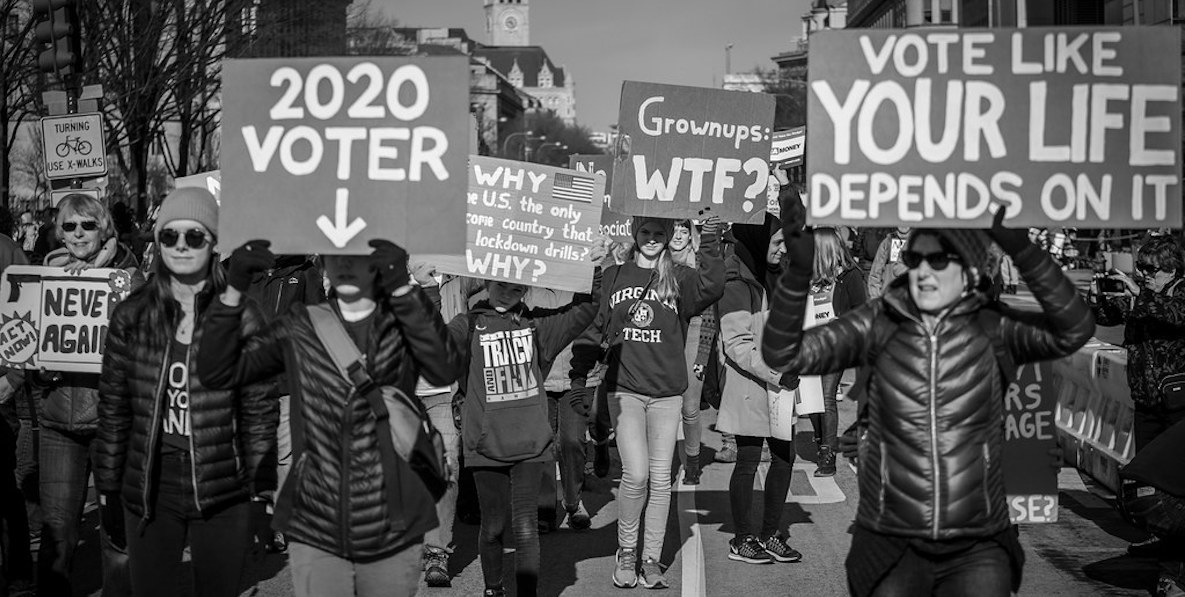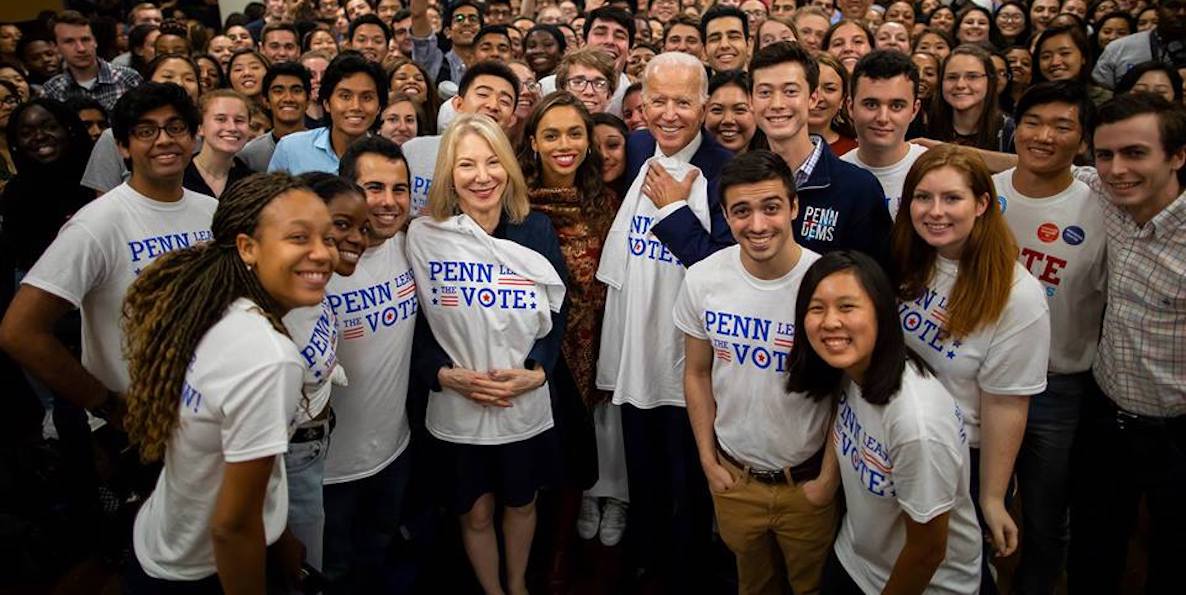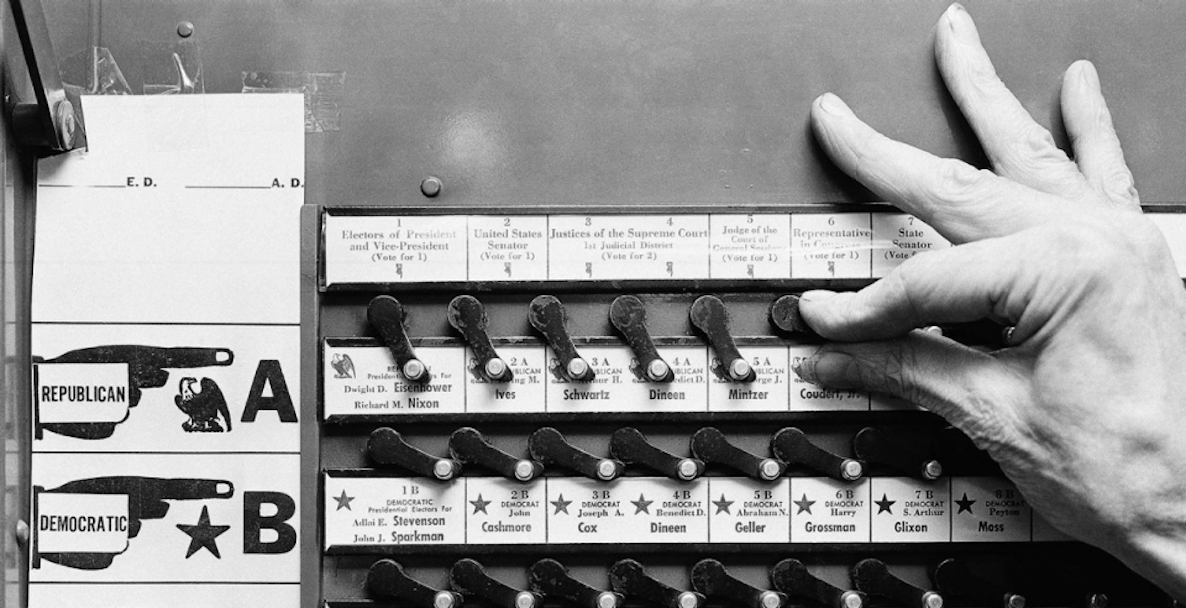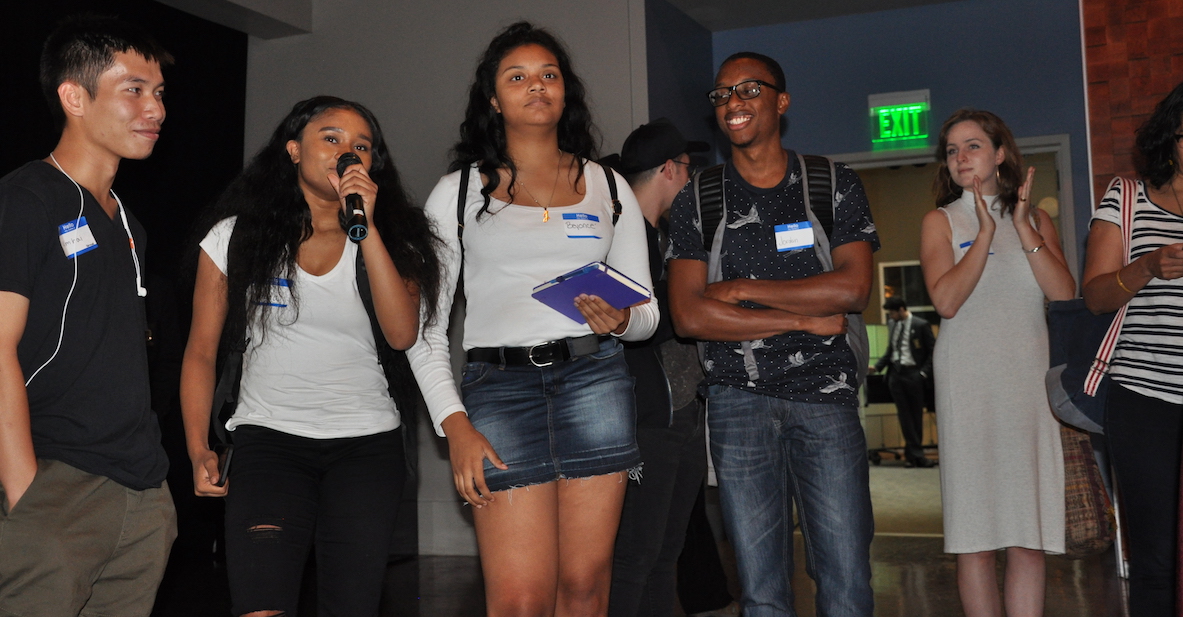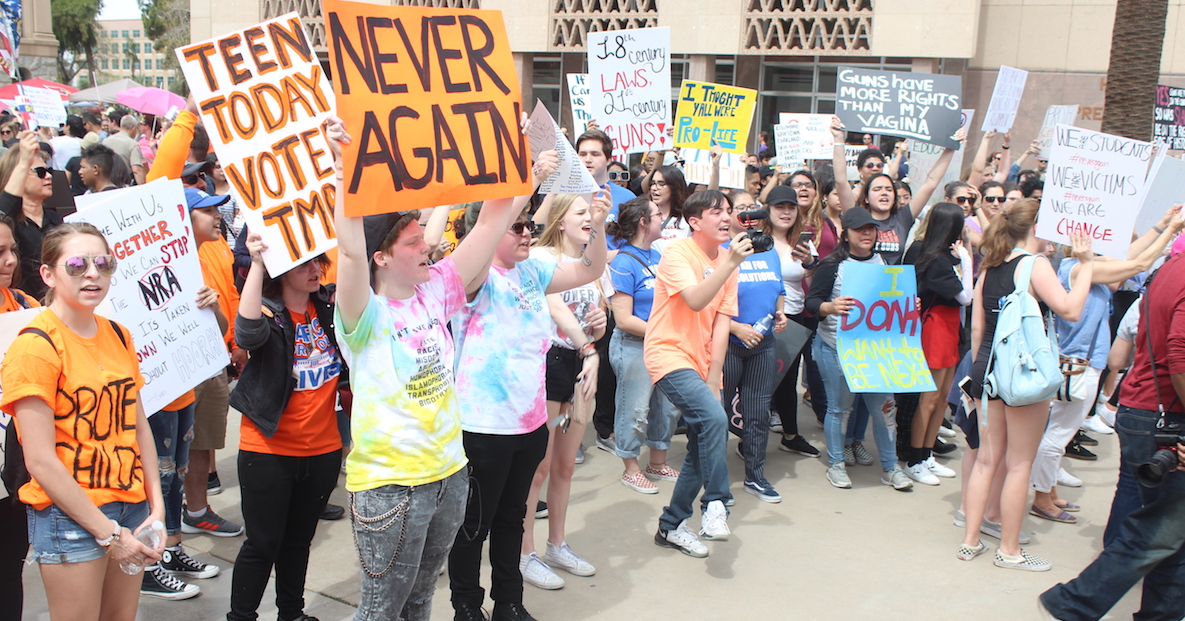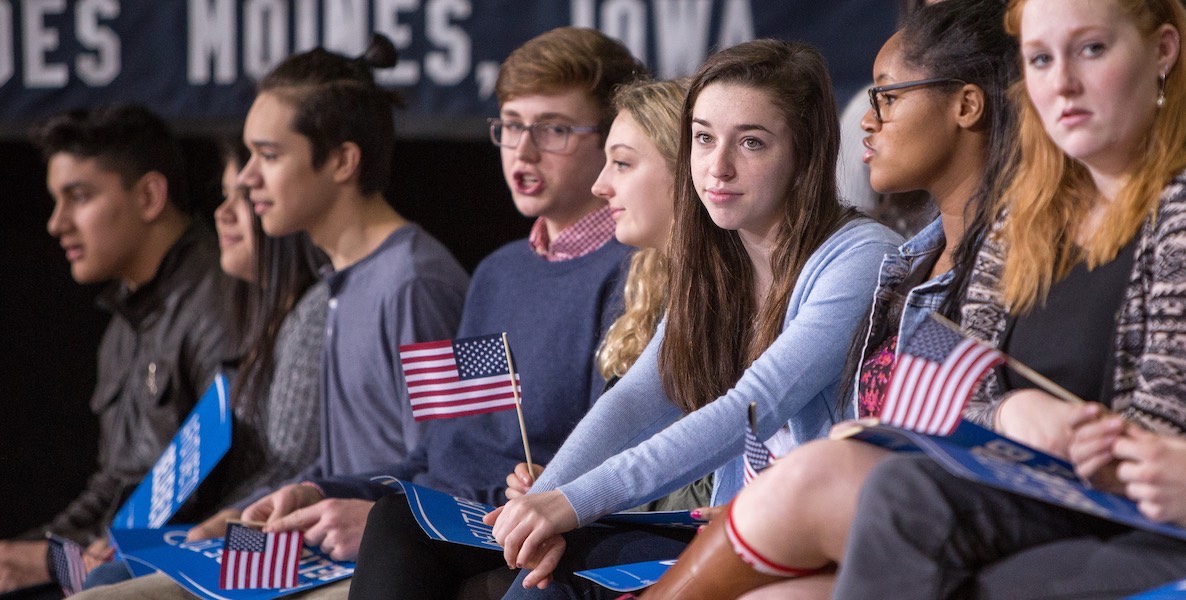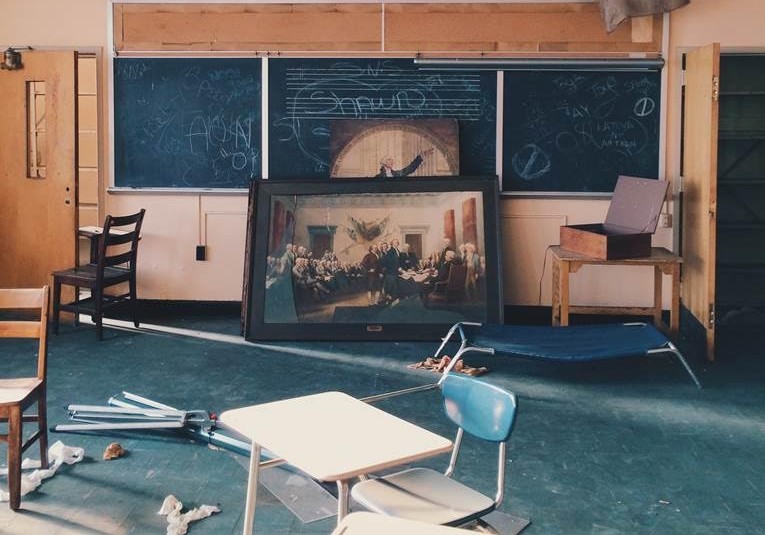![]() In a moment like this, everyone is trying to figure out exactly “what do we do with the kids?” There’s no doubt around the fact that it is, indeed, young people who are the primary drivers behind the social justice protest moment we’re seeing now.
In a moment like this, everyone is trying to figure out exactly “what do we do with the kids?” There’s no doubt around the fact that it is, indeed, young people who are the primary drivers behind the social justice protest moment we’re seeing now.
Recent Pew trends research shows adults between the ages of 18 and 29 are the majority of those having “conversations with family and friends” (73 percent) about racism; the majority of those posting about it on social media (53 percent); the majority donating to causes fighting it (21 percent); the majority contacting elected officials over it (13 percent); and the majority actually going to a protest (13 percent).
And that’s a great thing: they should be shaking it all up.
Still, as that moment ebbs and flows from one week to another (depending on what grisly video of an unarmed Black person getting beat down or killed at the hands of state-protected violent white people goes viral next) we’re wondering hard about how that energy gets channeled constructively into future phases. How do we transition them from protest to leading on permanent policy change?
We can’t keep having elections where adults get mad that most young people didn’t register or show up and young people get mad that adults are making decisions about their future … even though many of them had an opportunity to control that by registering and showing up and didn’t bother to do just that.
Future phases of this moment can’t just be all about the next big wave of protests. It can’t just be an endless cycle of frustrated face-masked Gen-Zers, and younger Millennials, too, hitting the protest circuit and stuck in perennial speak-up mode every time something tragic happens. After a while, too much of that gets tiring and eventually unstable, too. That might feel relieving at the onset, but so does that natural high after an intense workout or screaming into a pillow to blow off some steam.
![]() If big enough, the protest tactic may generate a few temporary victories. None of that lasts, however, if it’s not included in a long-game strategy towards deep structural changes or adjustments made in the aftermath. We don’t want the moment melting into just that: a moment. So, the hard work starts in truly mentoring, activating and positioning young people into real leadership beyond symbolic gestations. They need to see that their response created something tangible.
If big enough, the protest tactic may generate a few temporary victories. None of that lasts, however, if it’s not included in a long-game strategy towards deep structural changes or adjustments made in the aftermath. We don’t want the moment melting into just that: a moment. So, the hard work starts in truly mentoring, activating and positioning young people into real leadership beyond symbolic gestations. They need to see that their response created something tangible.
Young people need to see that they are being taken seriously. We must construct a framework whereby everyone interested and concerned has something to do. “It’s easy to start to believe ‘The Work’ is talking, and talking, and talking at people, and nodding heads, and pithy quotes, and panels, and talking,” recently tweeted Atlanta-based progressive writer Devyn Springer. “And there certainly is a place for panels and talking, but we have to be clear in understanding that ‘The Work’ is actionable.”
Ultimately, we’re just trying to avoid the grand disappointment as Gen Z looks for “a revolution.” That can oftentimes lead to predictably lower youth civic and voter engagement: As the Center for Information and Research on Civic Learning and Engagement (CIRCLE) shows “… 28 percent of young people voted in 2018, the highest midterm turnout in decades. It’s not high enough.”
Because we can’t keep having, for example, elections where adults get mad that most young people didn’t register or show up and young people get mad that adults are making decisions about their future … even though many of them had an opportunity to control that by registering and showing up and didn’t bother to do just that.
So how do we get young people equally engaged in all three Ps: protests, politics and policymaking? More importantly, how do we transition them from the easy lift of protest moment to the harder lift of electoral engagement and public policy? To start, we can’t keep missing out on or dismissing a lot of the low hanging fruit ways to get there.
A New Voting Age Movement
We’re seeing major moments—from climate change protests last year to George Floyd protests this year—where even younger people at ages from 15 to 17 are participating in these moments, but are frustrated by the simple fact it seems they can’t do much beyond that.
“This was cool for a minute, but it’s kind of frustrating to know that I’ve got to wait a few years before I can vote on climate change, something I know a bit about and care deeply about,” one 15-year old lamented after attending a Climate Strike walkout in Washington, D.C. last year. “By the time we get to vote and get rid of the people who don’t care about the planet, it will be too late.”
“This was cool for a minute, but it’s kind of frustrating to know that I’ve got to wait a few years before I can vote on climate change, something I know a bit about and care deeply about,” my own 15-year old daughter Croix Ellison lamented after attending a student Climate Strike walkout in Washington, D.C. last year. “By the time we get to vote and get rid of the people who don’t care about the planet, it will be too late.”
She’s not the only one feeling this way. As The Citizen has written about before, lowering the voting age to 16 might be the way to trigger a mass movement of high school-age kids excited by the prospect that they could exercise a lot more than free speech—and be taken seriously in the process. It’s not unheard of: a few small American cities do it for local elections, and Los Angeles and Oakland students may get to vote for school board at some point soon. And other countries like Austria, Argentina, Brazil, Germany and the United Kingdom allow teens to vote in local, regional and national elections.
The problem here, however, is national polls showing an overwhelming number of adults opposing such a move. That was according to the last poll on the question in 2019 shortly after Rep. Ayanna Pressley (D-MA) lost her bid in the House to add it as an amendment to a larger voting rights bill: 75 percent of respondents in a The Hill/Harris X poll didn’t approve.
Does that necessarily mean it won’t work? Not really—it just means people aren’t all that informed about it. It also means adults don’t want to understand, and that while many on one hand want to constantly criticize grown teenagers for being apathetic and disengaged (while simultaneously giving them keys to cars and allowing them to have sex), they don’t want to give them a simple tool that activates civic engagement right away.
Philadelphia would be a perfect laboratory for lowering the voting age—a big ![]() city, going ambitious, much the same way a cluster of smaller Maryland cities in suburban Washington, D.C. like Takoma Park, Greenbelt and Hyattsville did when they lowered their voting age to 16. Not only would the experiment yield substantially higher turnout in a city with embarrassingly low turnout as is, but younger people in dysfunctional school systems like Philadelphia’s would have bigger say over making those systems better.
city, going ambitious, much the same way a cluster of smaller Maryland cities in suburban Washington, D.C. like Takoma Park, Greenbelt and Hyattsville did when they lowered their voting age to 16. Not only would the experiment yield substantially higher turnout in a city with embarrassingly low turnout as is, but younger people in dysfunctional school systems like Philadelphia’s would have bigger say over making those systems better.
But thus far in Philly there is little public thought into imagining a mobilization around lowering the voting age to 16. “I have heard some arguments and appreciate them,” novelist and Penn Professor Lorene Cary, who started youth vote organization Vote That Jawn, responded by email last year when asked about it. “But I don’t feel so passionately for such a change to make the bandwidth among other commitments to champion that cause. Right now, it’s all I can do to figure out the best way to continue working on 18-year-old turnout.” Yet, research from Tufts University’s Center for Information and Research on Civic Learning and Engagement (CIRCLE) shows lowering the voter age triggers a “trickle-up” effect or more turnout from those same 18-year olds.
And to date, no one in City Council wants to take it on. “It does not seem like lowering the voting age in the City of Philadelphia is within the power of City Council,” Kendra Brooks’ spokesperson Maggie Hart told me recently by email. While it’s true that election changes require state action (something that’s not likely given the Republican-majority legislature) it’s also true that we need local officials to step up to push for those changes—particularly those, like Brooks, with change-agent personas. And it’s confounding when we think of all the non-essential things Councilmembers create resolutions for all the time.
Polling Station Gigs
Without being disrespectful here, there are just way too many older, senior-age people working the polls. That, off the bat, gives young people the signal that this is not an activity designed for them, but designed for people who could be their grandparents. Yet, poll workers are paid positions that are available for high school students, too, in places like Philadelphia and beyond.
One of the main cited reasons states, counties and municipalities have been forced to close the majority of 200,000 polling precincts nationwide this year is because the older people who typically run these places are much more vulnerable to Covid-19. But, even before the pandemic, election officials admitted in multiple Election Assistance Commission surveys that they were having a very hard time finding people to staff polling precincts. Hence, we find that job typically falling to individuals who are age 61 or older, many either retired or more available to commit the full Election Day.
As a result, the EAC found that “… less than one-fifth of poll workers were younger than 41 years old, whereas more than two-thirds were 61 years or older.” As Theresa Nelson at the National Conference of State Legislatures discovered: “Local officials are often dependent on retirees to meet their staffing needs, yet the long hours (only 18 states allow poll workers to work part time or in split shifts) and the trend toward more technologically advanced election equipment (i.e. voting machines and electronic poll books) pose challenges to these workers.”
![]() Younger people, particularly in the 16 to 24 age cohort, could be filling those gaps promptly. It makes no sense that election officials, especially in cities like Philadelphia, haven’t made much effort in aggressively recruiting young people for what are actually paid poll worker jobs. It doubly defies logic considering the national youth unemployment rate is already high at nearly 30 percent. During a recent broadcast of Reality Check on WURD, Philadelphia City Commissioner Lisa Deeley mentioned it in passing, rather casually, that her office has a special “Student Poll Worker Program” that recruits Philly’s young people to work the polling precincts.
Younger people, particularly in the 16 to 24 age cohort, could be filling those gaps promptly. It makes no sense that election officials, especially in cities like Philadelphia, haven’t made much effort in aggressively recruiting young people for what are actually paid poll worker jobs. It doubly defies logic considering the national youth unemployment rate is already high at nearly 30 percent. During a recent broadcast of Reality Check on WURD, Philadelphia City Commissioner Lisa Deeley mentioned it in passing, rather casually, that her office has a special “Student Poll Worker Program” that recruits Philly’s young people to work the polling precincts.
It’s a unique program … that Philadelphia, obviously, doesn’t want any young people to know about. Go to the PhiladelphiaVotes website and there is absolutely nothing there about it —compared to cities like Los Angeles and San Diego which highlight such programs with dedicated pages. The only place where you can find out that Philadelphia high school students can work the polls is at VotesPA, and even there they tell interested prospects to contact their local election office.
Paid Campaign Training and Work
We should stop asking young people to volunteer their time to staff campaigns and movements and be a lot more intentional about it: pay them. Political work is intensive and grueling. The one way political practitioners and grumpy adults can start getting kids involved in politics is using some of that raised campaign and political action committee dark money to pay them for their time—just like we pay adult political consults to conduct, ironically, youth voter outreach campaigns. This provides an incentive for them to not only work in politics, but to also lead.
Start paying kids to do political work on a universal basis and watch civic engagement catch like fire. Progressive non-profit Blue Future is already doing something like this with a 10-week campaigns and politics training program for young people ages 16 to 24 where they not only learn everything about electoral politics, but they get paid a $1,000 stipend in the process.
Once they’re trained, they also acquire invaluable political practitioner and consulting skills that are applied once they are plugged in to assigned campaigns. This is, also, how State Rep. Chris Rabb (D-PA) won his first campaign: hiring young people at an hourly minimum wage to conduct campaign work while he structured it as field curriculum training for students to acquire advanced campaign management skills and a certificate of completion at the end. Young people, in the end, led Rabb to what was once considered a long shot victory.
Mandatory Civic Literacy and Service Hours
The city of Philadelphia, like most (if not all cities) already has a built-in community service hours program for non-violent offenders ages 18 and older. Most school districts, like Philly, have high schools that require a minimum number of community service hours before they can graduate. What if the concept of mandated community service hours was applied to active civic literacy?
As part of a much more sophisticated “civic literacy” program built into all high schools—and, perhaps, middle schools, too—districts could launch a civic service hours requirement where students must commit work to organizations, government agencies, and other institutions that fulfill important civic functions.
All people, especially young people, must learn that the more anti-racist people and organizations forcefully insert themselves into learning and overtaking society, the less racist the system becomes. We can help them get that message by taking them seriously—on the streets and in the ballot box.
That could mean a number of things: from students working for city and state legislators (and being provided meaningful, research-oriented work other than fetching coffee) to young people immersed in constituent-facing programs administered by different agencies. It could also mean young people getting internships or “junior fellowships” at think tanks and other academic institutions. The goal is to have students learn through actual service.
This would be a way to make up for the fact that schools across America no longer teach basic civics in school—a practice that ended right around the time that voter turnout also started to plummet, as laid out in a report from CIRCLE. In Philly, the Rendell Center for Civics and Civic Engagement has tried to make up for the lack of civics training with programs in several schools and at the Constitution Center—but it is piecemeal, and in no way mandatory. Meanwhile, so is voting among both younger and older adults.
As a civil society, we have a variety of activities and institutions in place to transfer endless amounts of youthful energy and natural talent into policy change. All people, especially young people, must learn that the more anti-racist people and organizations forcefully insert themselves into learning and overtaking society, the less racist the system becomes.
We can help them get that message by taking them seriously—on the streets and in the ballot box.
Charles D. Ellison is executive producer and host of “Reality Check,” which airs 11 a.m. to 1 p.m. Monday through Thursday on WURD Radio (96.1FM/900AM). Check out The Citizen’s weekly segment on his show every Wednesday at noon. Ellison is also principal of B|E strategy. Catch him if you can @ellisonreport on Twitter.
2018 March for Our Lives in Phoenix, AZ


